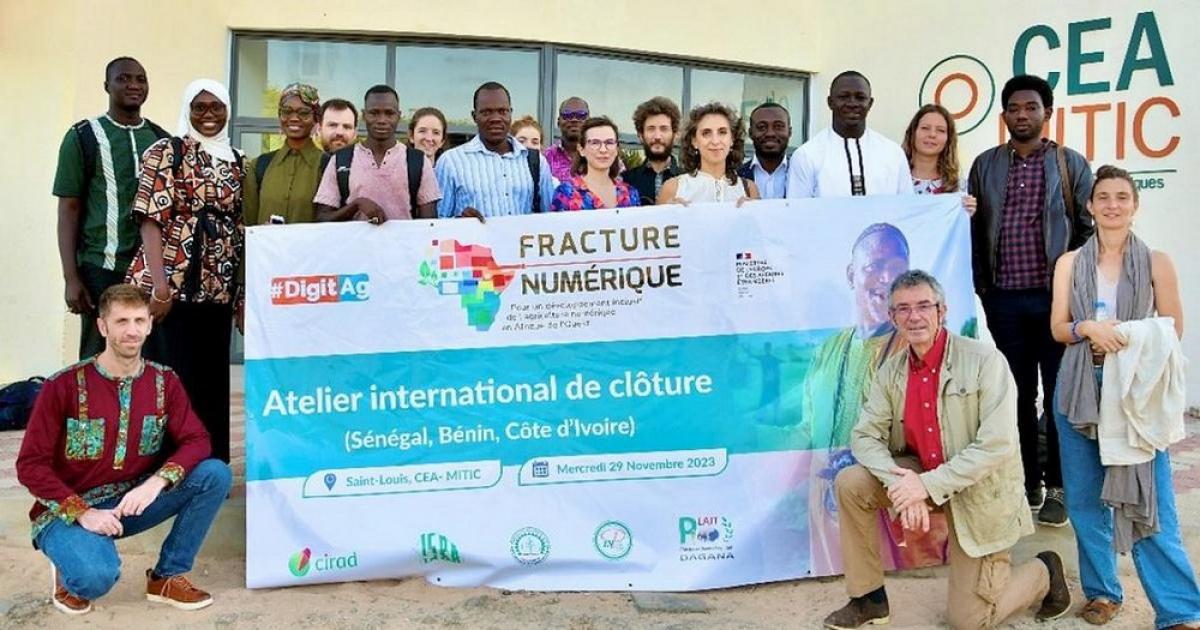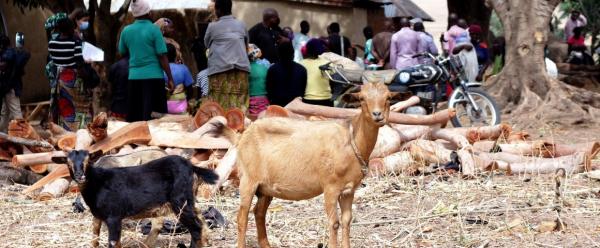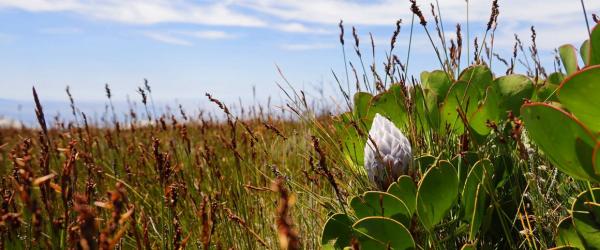Results & impact 28 October 2025
- Home
- CIRAD news
- News
- Digital adoption in West African agriculture
Digital adoption in West African agriculture: the reality behind the promise
©YLO DESIGN STUDIO.JPG)
In West Africa, phones are almost the only digital tool used. Around 20% of people do not own one, 60% have a basic phone and 20% have a smartphone © Ylo Design Studio
“Mobiles give us easy access to our customers, which has really changed the way I work. The phone is my business, I can't work without it”. Constantine Toviegbe is a vegetable farmer in Benin. Her main challenge is to sell her produce before it spoils. Like almost 80% of the West African population, she has a mobile phone, and for her, as for the others, there is no going back.
The reality of digital technology in West Africa
For two years, the Digital Divide project explored digital adoption by farmers in different value chains: dairy farming in Senegal, cocoa production in Ivory Coast and vegetable farming in Benin. These countries and sectors all face very different challenges.
“The development of digital technology holds promise for development and inclusion. Significant investments are being made to support digital tools in agriculture, especially through local digital service ecosystems. Does this promise translate into reality in farmers’ practices?”, asks Nicolas Paget, project coordinator and researcher at CIRAD. The scientists used political science, development anthropology, economics, geography and management to examine this reality.
Phones are ubiquitous
A quantitative study was conducted with 3660 farmers in the three countries to produce a database on digital adoption by farmers in these countries. The findings show that phones are almost the only digital tool used there. Some 20% of people do not own one, 60% have a basic phone and 20% have a smartphone.
The team at CIRAD and their partners noted almost all the typical digital divides: people with phones, and especially smartphones, are typically male, urban, young and educated. These divides are compounded by access to electricity, a critical factor in access to digital technology.
It should also be noted that network access costs are far higher than in France relative to income, in terms of both recharging and credit.
The crucial issue of access
Digital tools are used for two types of services:
- Market access: connecting producers with buyers and payments through mobile money services.
- Information and knowledge sharing: discussion groups on instant messaging in order to make decisions about practices, treatments, herd management, etc.
“There is no problem in terms of motivation to access digital tools. Our surveys show that people who have access to such tools never look back. So access is a critical issue”, says Florent Okry, a researcher at the National University of Agriculture in Benin. “Digital capabilities are relatively limited and strongly linked to the type of phone owned. Buying a basic phone allows people to receive calls and to use mobile money. When someone has a smartphone, they can use instant messaging.”
Another critical issue in these countries is access to electricity. This can even be a barrier to the adoption of smartphones, which need to be recharged every day or so, whereas a basic phone can last up to a week.
The non-use of agriculture-specific apps
“We have barely seen any use of apps intended for agriculture”, says Nicolas Paget. “But that doesn’t mean farmers don’t use their phones for their agricultural activities. In fact, they use instant messaging apps intensively to discuss their crops, for example to identify pests, for peer exchange, to promote their products, to negotiate with buyers and for mobile money payments.”
According to the researcher, these findings show that the real situation is quite different from trends observed in action by policy makers or international donors. The tendency is to develop apps that often have very specific uses intended for small farmers. “It seems paradoxical to invest large sums in designing these apps that require considerable efforts to build users’ capacities, yet are ultimately not used or adopted by users. Rather than fostering inclusion, these apps may actually increase inequalities, since it is the people who already have access and capacities who stand to benefit the most from such investments."
Frugal use of digital technology
The team of scientists argues that the best way to support farmers is to foster the frugal use of simple digital tools. “This frugal digital strategy would be based on tools farmers already know how to use and on capacities they already have, to enable them to meet some of their daily goals more efficiently, especially in agriculture”, says Martin Notaro, a researcher at CIRAD responsible for the Ivory Coast component of the Digital Divide project.
These findings and conclusions were presented at events organised in the three countries. “We brought together farmers, microfinance institutions, telephone operators, startups and representatives of the Ministries of Agriculture, Livestock, and Digital Economy to report on our findings and to collectively think about strategies to develop digital tools for farmers that are useful, usable and used.”





























